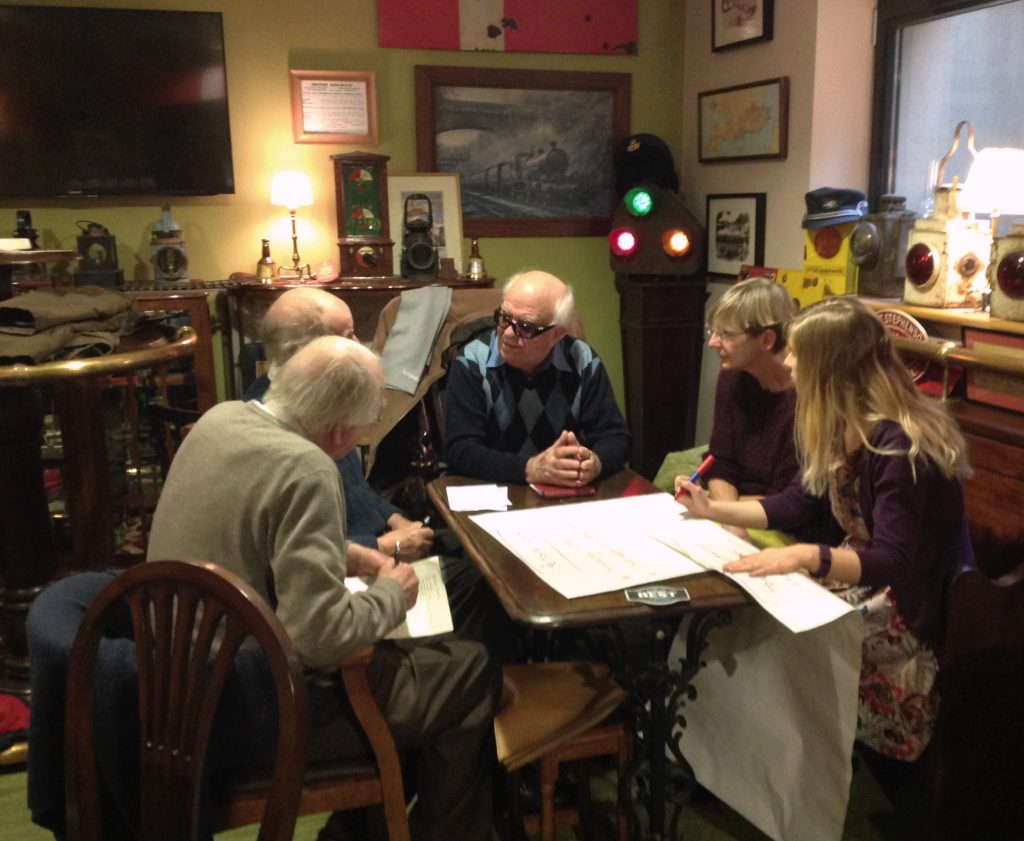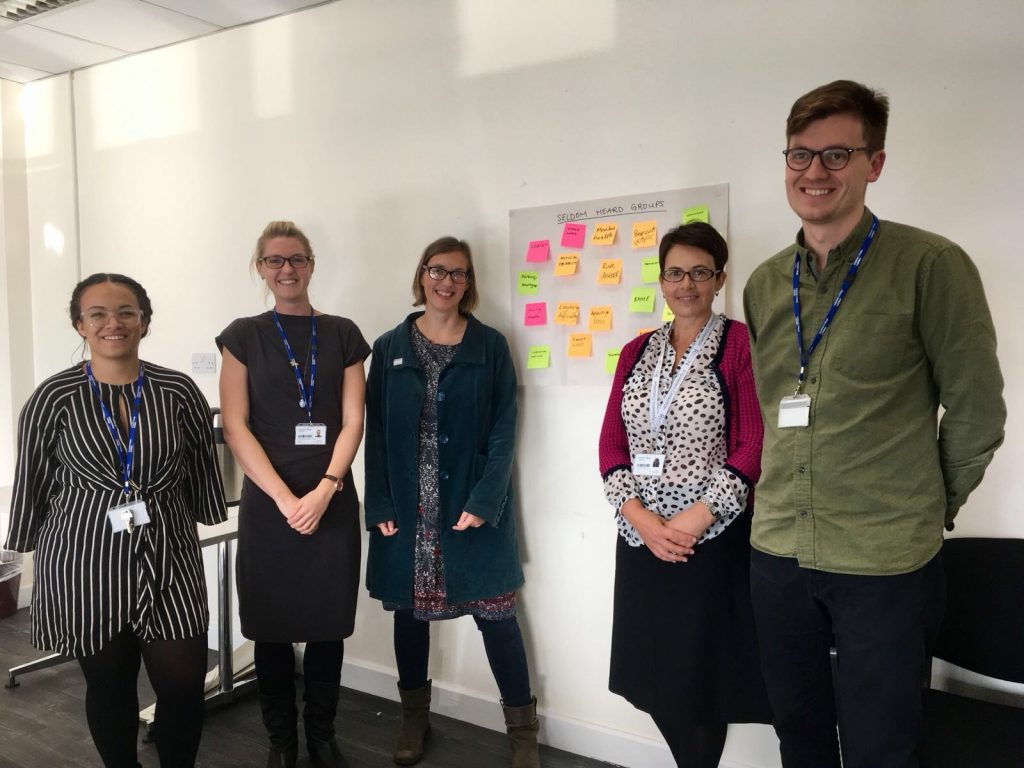On Tuesday afternoon we welcomed Dr Mel Hughes to join a discussion at the biannual Imperial and Partners PPI in Research Forum on involving “seldom heard voices”. Mel is a principal academic in social work; academic lead for the Bournemouth University (BU) PIER (Public Involvement in Education and Research) partnership and Deputy Lead for the newly formed research Centre for Seldom Heard Voices at BU . Mel’s perspective was interesting for two main reasons: (1) her commitment to working with “seldom heard voices”, and (2) her experience of doing public involvement both in education and social work, whereas PERC tend to focus on research. Here Mel shares her reflections on the discussion and summarises her recent paper.

Seldom heard voices and PPI
I was invited to present at Imperial’s PPI network this week to talk on the theme of inclusivity in PPI. At Bournemouth, we are currently exploring challenges and opportunities for engaging seldom heard voices in PPI. The basis of our work is that those most affected by health inequalities often have the least opportunity to inform and shape health research. Beresford (2007:310) highlights that if diversity and the barriers that can be in the way of increasing diversity are not addressed, ‘participation is likely to be partial, and reflect broader social divisions and exclusions’ i.e. it will further reinforce health inequalities.
This led to some great discussions within the Imperial PPI network. The main focus was whether we need to approach PPI differently to engage a more diverse range of voices. From our work, we are finding that we need to think differently about who and how we involve. Only a certain demographic of people will feel comfortable and confident engaging in focus groups, providing feedback on plain English summaries or voicing their opinions in formal settings. These methods and voices are valid but, in our experience, are not particularly diverse.
Our current work seeks to engage marginalised groups such as rough sleepers in PPI activities by creating outreach opportunities for researchers to ‘go to them’. As a starting point, we challenge the notion of ‘hard to reach’ groups. In our experience, marginalised groups are easier to locate and engage when collaborating with community organisations such as night shelters. The challenge is to change a culture of PPI which relies on the public ‘entering our world’ rather than us seeking a wider range of voices out in the community.
The meeting ended with each member writing an action to work more with people who are seldom heard, to achieve before the next meeting.
Public involvement in health research: a concept analysis
Within the Bournemouth University PIER (Public Involvement in Education and Research) partnership and our research Centre for Seldom Heard Voices we have been going back to basics by re-evaluating the nature and purpose of PPI (what, why and how) to identify ways of broadening the models and approaches used by researchers in our network. This stems from our on-going work to identify, pilot and evaluate models which have the most impact and involve a more diverse range of voices in shaping and informing health and social sciences research.
As part of this process we conducted a concept analysis drawing on published research where claims of PPI were made. As a result, we identified five operational definitions for conducting PPI: undefined involvement; targeted consultation; embedded consultation; collaboration and co-production; and user led research. We deliberately avoided presenting these as a ladder or pyramid of involvement given the significant impact on the research cycle which can be achieved with each approach. The definitions provide a useful tool for researchers to consider how best to incorporate public involvement into their research and to consider what the impact of doing so might be.
Hughes, M. and Duffy, C 2018 Public involvement in health and social sciences research: a concept analysis. Health Expectations. Available for open access at https://rdcu.be/5uin

